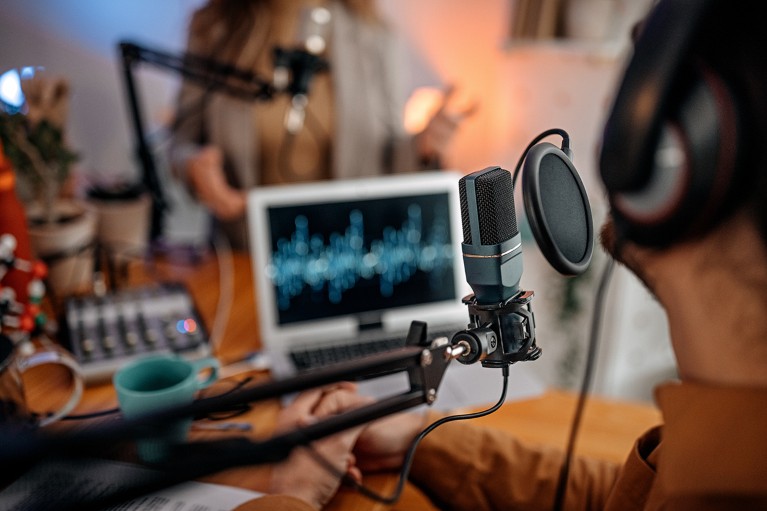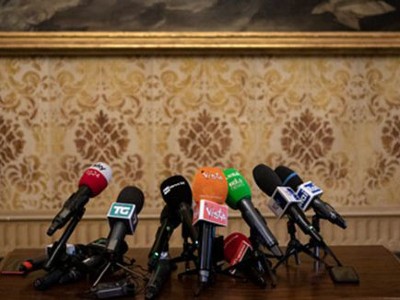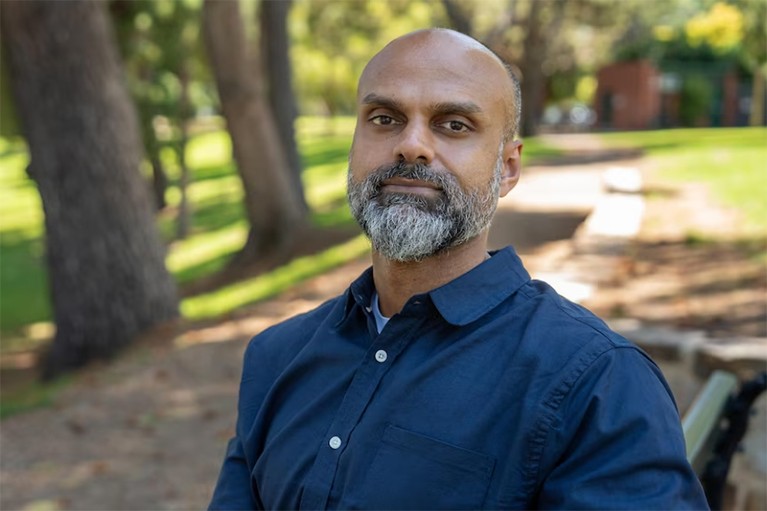
Podcasts and radio appearance can disseminate your science and raise your profile.Credit: Mixetto/Getty
Eighteen months ago, I had zero media experience. I’m a physical-activity researcher in the school of Allied Health and Human Performance at the University of South Australia in Adelaide. In the three years since completing my PhD, I hadn’t written articles for anyone outside my scientific community, courted mentions in a newspaper or even thought about speaking on the radio or on podcasts. I was content to spend my days head-down in research, analysing data and aiming to publish papers. Media publicity was nowhere on my radar.
At the start of 2023, along with my colleagues, I published a major systematic review in the British Journal of Sports Medicine1 that summarized much of the research on how exercise can help to reduce depression and anxiety. It was unusual for two main reasons. First, we synthesized all the evidence in the field, which involved collating the results of nearly 100 systematic reviews. Second, we analysed the most effective exercise types, along with varying intensities and durations of exercise and the effects across diverse clinical and non-clinical populations.
How to work with your institution’s press office to maximize the reach of your work
We found overwhelming evidence that exercise improves mental health across numerous healthy and clinical populations. Higher-intensity physical activity was linked to more substantial improvements in symptoms, but the effectiveness of interventions decreased with longer programmes of training.
The findings stuck a chord with many people, so the review ended up getting a lot of attention. I received requests from around the world to do radio interviews and go on podcasts. I was also invited to give talks and presentations in-person across Australia and virtually for international events.
Researchers should court media attention responsibly, with the ultimate goal of informing the public about scientific breakthroughs. But I’ve found that it can also raise your personal profile and advance your career.
Spreading the message
Over the past year, my media exposure has continued, with my research being featured in outlets including The Wall Street Journal, CNN, the Daily Mail, Yahoo, Times Higher Education, Cosmos magazine, Medical News Today and Science Daily. This has opened up unexpected opportunities. It has resulted in researchers from around Australia reaching out to me to collaborate on further reviews and meta-analyses on topics related to physical activity and lifestyle behaviours, allowing me to expand my research into different domains.
Collection: Science communication
My media exposure has also led to industry collaborations. One Australian start-up company, which runs an app that aims to help office workers to exercise, reached out and provided funding for me to evaluate the effectiveness of their tool. The results are being prepared for publication in a peer-reviewed journal. The opportunity not only enabled valuable research examining an intervention in a real-world setting, but also laid the groundwork for potential collaborations with industry partners.
Furthermore, media exposure has helped me to develop valuable transferable skills. I had to hone my presentation skills to prepare simplified explanations of my research and communicate across fields. Giving media interviews enhanced my skills in translating complex findings into everyday terms, using relatable analogies, being concise and staying composed under pressure. These have all proved invaluable for me in research, public speaking and collaborations beyond academia.

Ben Singh learnt valuable skills through media exposure.Credit: Ben Singh
Although the media interest was serendipitous at first, I’ve learnt to be pro-active in boosting media engagement. I now pitch my published papers to relevant journalists and outlets, highlighting what’s new, useful and surprising about my research.
I also regularly write for the website The Conversation to practise communicating research to broad audiences accessibly. I use social media to showcase my work, build authority in my field, share updates, promote publications and connect with peers and the public. And I’ve attended media training offered by my institution, learning skills such as: crafting compelling narratives and soundbites; developing an engaging presentation style; preparing for different interview formats; and translating complex concepts into useful and easily understood analogies.
Prepare to push back
Not all media interactions are perfect. I’ve encountered overly simplified coverage, misinterpretation of my work and pressured timelines. For instance, in the discussion section of our review in the British Journal of Sports Medicine, we compared our findings with those from past reviews on how medications affect depression. On average, our results showed that exercise was 1.5 times better than medication at improving symptoms of depression, in terms of effect sizes. This comparison was not the main purpose of our review, but several media outlets portrayed our study as a head-to-head analysis pitting exercise against medication. This oversimplifies the complexity of treatment options and leads to misconceptions about the role of exercise in comprehensive mental health care. The comparison failed to account for the interplay of various factors and individual differences, and could lead people to make inappropriate generalized decisions about their treatment without consulting medical professionals.
How to get media coverage and boost your science’s impact
To prevent this kind of misrepresentation, I learnt to articulate the actual objectives and limitations clearly up front during interviews, conferences and seminars. I also realized that I needed to be prepared to correct any inaccurate portrayals rapidly by providing proper context and caveats.
The potential rewards have made proactively seeking media opportunities worthwhile, even if it felt daunting at first. Rather than leaving it to chance, I’ve been strategic in promoting my own research through media engagement as an early-career academic. The visibility, credibility and skills I have gained have amplified my findings and fuelled my career advancement. I’m glad I stepped out of my comfort zone to embrace media exposure.

 How to get media coverage and boost your science’s impact
How to get media coverage and boost your science’s impact
 How to work with your institution’s press office to maximize the reach of your work
How to work with your institution’s press office to maximize the reach of your work
 People, passion, publishable: an early-career researcher’s checklist for prioritizing projects
People, passion, publishable: an early-career researcher’s checklist for prioritizing projects
 How to switch research fields successfully
How to switch research fields successfully
 Collection: Science communication
Collection: Science communication







